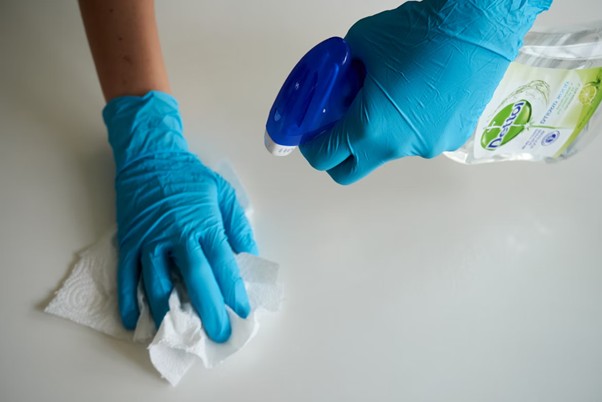In the competitive world of rental properties, attracting tenants is only half the battle; the real long-term win is keeping them. One of the most overlooked yet powerful tools in a landlord’s toolkit is regular, thorough deep cleaning. When a property is consistently maintained beyond surface-level upkeep, it not only enhances the living experience for tenants but also protects and even increases the property’s value over time. In this post, we’ll explore how routine deep cleaning plays a crucial role in lease renewals, property appearance, and cost control, and how a professional service, such as https://www.summitclean.com/, can be part of your strategy.
First Impressions Last: Setting a Standard from Day One
When a prospective tenant walks into a unit, the condition matters. If the space feels fresh, smells clean, and shows attention to detail, that first impression sets expectations. A pristine interior signals that the landlord cares, that maintenance is prompt, and that the property is treated with respect. Tenants who move into a spotless home are more likely to treat it well and feel they’re entering a space worth holding onto.
That standard must be maintained beyond the move-in date. Over time, dust, grime, hidden debris, allergens, and wear accumulate. If deep cleaning is skipped, even a well-appointed unit begins to show neglect. Rather than waiting until a space becomes visibly degraded, proactively scheduling periodic deep cleaning helps reset the unit’s condition. That way, tenants live in a healthier environment and owners preserve the aesthetic and functional integrity of the property.
Health, Comfort & Perception: The Tenant Experience
A living environment that is consistently cleaned on a deep level matters more than most landlords realize. Dust buildup, mold, mildew, allergens in carpets or ducts, and lingering odors all affect how tenants feel in their homes. When these issues go unchecked, tenants may complain, request remediation, or grow frustrated with perceived neglect. That dissatisfaction often drives nonrenewal decisions.
Conversely, a tenant who sees that management takes cleanliness seriously will feel valued. That sense of respect encourages them to reciprocate, to care more about the space, and to stay longer. Tenants frequently mention “how well the property is maintained” as a reason they renew. In fact, cleanliness often ranks high in tenant satisfaction surveys as a critical factor influencing retention.
Extended Lifespan of Surfaces & Systems
Deep cleaning isn’t merely cosmetic; it delays deterioration. Carpets wear faster when dirt and grit are ground into fibers. Hard floors accumulate micro-scratches when abrasive particles are left unchecked. Grime in kitchens and bathrooms can degrade fixtures, accelerate rust or corrosion, or cause grout and caulking to fail prematurely.
In HVAC systems, accumulated dust and dirt reduce airflow efficiency, increase energy use, and put stress on motors and filters. That means higher utility costs and more frequent breakdowns. A routine deep clean of ducts, vents, filters, and units can help avoid those costs.
By preserving the condition of surfaces, appliances, fixtures, and systems, landlords reduce the frequency of capital expenditures. Those savings are one of the more tangible returns on a well-executed deep cleaning program.
Vacancy Reduction & Faster Turnovers
Vacancies cost money. The longer a unit sits unoccupied, the more potential income is lost. When deep cleaning is an ingrained part of the turnover process — even during tenant occupancy transitions — it accelerates readiness. A property that doesn’t require extra patching, odor removal, or last-minute cleaning delays can be listed sooner.
Additionally, in competitive markets, prospective tenants often tour multiple units. If your property shows better — with clean floors, sparkling bathrooms, odor-free kitchens — it stands out. That translates to faster lease signings and lower downtime.
Because deep cleaning tends to uncover hidden issues (e.g., minor mold growth, unnoticed damage, stains) early, you can address them before they escalate into more significant issues that delay re-renting.
The ROI of Deep Cleaning: Cost vs. Benefit
Skeptics might balk at treating deep cleaning as a recurring expense. But the numbers often justify it. The upfront cost of having a professional service come in periodically is typically small compared to replacing worn carpets, refinishing damaged floors, or addressing neglected mold infestations. The cost of vacancy and turnover also must be weighed. When a unit becomes attractive faster and retains tenants longer, the incremental return often outweighs the cleaning investment.
Moreover, professional cleaners bring efficiencies, equipment, and techniques most landlords can’t replicate on their own. Using a qualified deep cleaning/restoration company ensures better results, less damage risk, and consistency. A provider like https://www.summitclean.com/ can help deliver that consistency across multiple units or properties.
By building a cleaning schedule into your operational budget, you reduce reactive, high-cost surprises, stabilize net operating income, and strengthen your long-term financial position.
Implementation Tips & Best Practices
To make routine deep cleaning effective, consistency is key. Deep clean at regular intervals (for example, quarterly or semiannually) regardless of tenant turnover. Use checklists that cover often-neglected areas, such as behind appliances, inside cabinetry, duct and vent cleaning, grout/caulk areas, and ceiling fans or high surfaces.
Pair the deep cleaning with periodic inspections, walk the units, note areas that need touch-ups, and take action early. Integrate cleaning milestones into lease renewal timelines (e.g., offer to coordinate a deep clean just before lease renewal). Finally, communication with tenants helps: explain the benefit to them (better air quality, healthier living, longer-lasting finishes) so they understand why such cleaning is part of your professional management.
Conclusion
Routine deep cleaning is far more than a cosmetic luxury — it’s a strategic, value-preserving investment. Consistent attention to hidden dirt, grime, allergens, and wear amplifies tenant satisfaction and loyalty, reduces complaints and turnover, and extends the longevity of surfaces and systems, for landlords and property managers seeking to maximize retention and protect property value, incorporating a professional deep cleaning regimen can yield dividends in financial stability, reputation, and tenant relationships.










